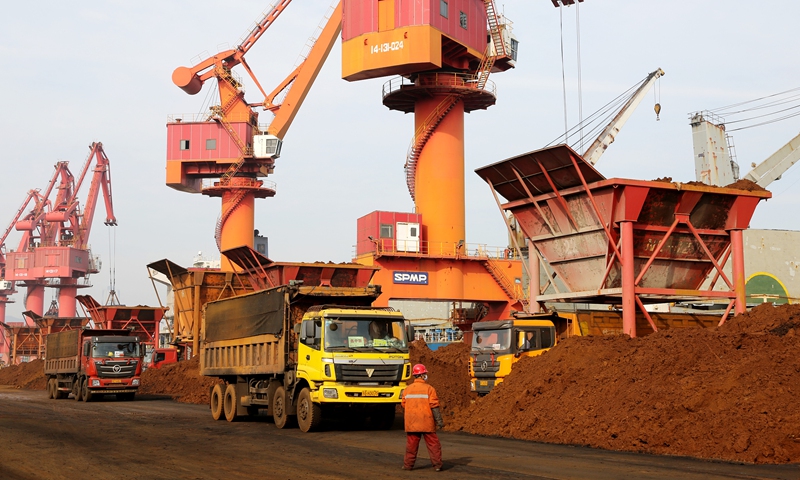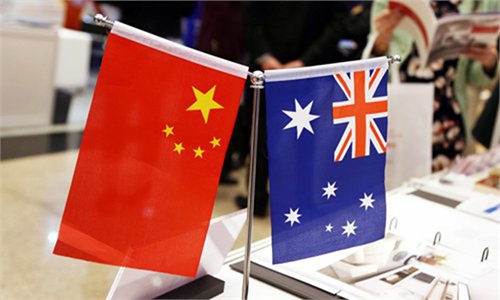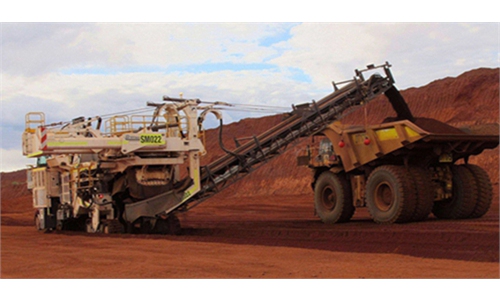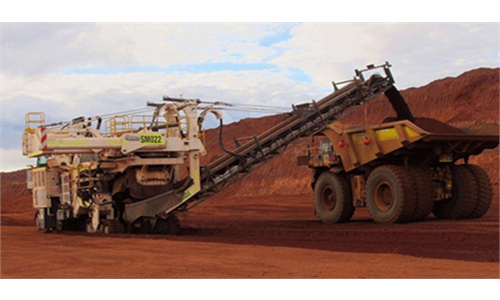
iron ore Photo:VCG
In an attempt to diversify raw materials for steel-making and reduce the industry's over-reliance on iron ore, China has officially issued a set of new national standard for steel scrap recently, the Xinhua News Agency said on Thursday, citing the China Iron and Steel Association.
The new benchmarks, which will come into effect in the beginning of 2021 and will allow imports of scrap steel that meets industry standards, may come as a signal that China has taken the surging global iron ore prices seriously, and is ready to tackle the problem.
On Thursday, the most actively traded iron ore futures on the Dalian Commodity Exchange, for May delivery, closed up 2.60 percent at 1,026.5 yuan ($157.3), the highest level since 2013 when the futures contract was set up in the exchange.
Soaring iron ore prices have disrupted normal operation of the sector's upstream and downstream businesses, damaging long-term healthy development of the steel-making industry. It is the responsibility of the government and the regulators to maintain price stability and restore normal market order.
It is worth noting that China's move to curb the spike in iron ore prices is not aimed at any country, which should not be misinterpreted as part of its trade actions targeting Australia. Now some politicians in Australia claims that even though exports of some Australian products to China are halted, the soaring iron ore prices will be sufficient to make up for the losses for the Australian economy, given China's huge demand for ore.
In fact, current iron ore prices have obviously deviated from the supply and demand fundamentals, given that China's raw steel production is expected to grow by 10 percent this year while there is no big change to global iron ore supplies. Yet, whatever the reasons behind the price hike, China has the ability and confidence to stabilize the iron ore price levels.
The release of the new standards may mark the first step of China's push for diversifying raw materials for steel production by encouraging the utilization of global and domestic scrap steel, which is the only material that can replace iron ore in large quantities and is conducive to carbon emissions reduction.
At present, China's scrap utilization ratio remains at a relatively low level -- around 20 percent, far lower than the global scrap-to-steel ratio of approximately 50 percent. And China still has huge room for growth in terms of both scrap consumption and recycling. Moreover, the country's relaxation of import controls on scrap steel could also substitute some of the demand for imported iron ore.
In this sense, increasing the use of scrap steel is expected to have a positive impact on restraining the recent wild volatility in iron ore prices.
Of course, the issuance of the new standards just raises one option for China to stabilize iron ore prices, and the country may have more measures.



